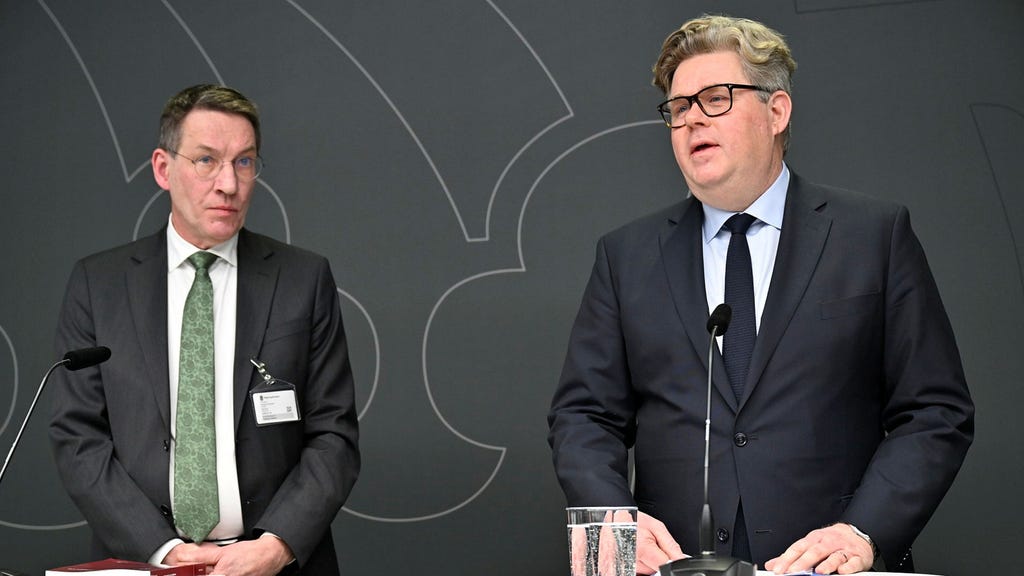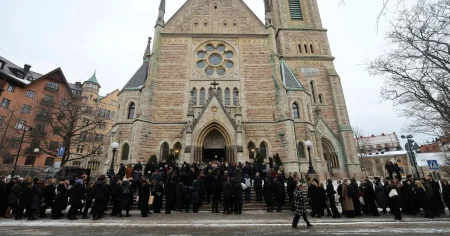The Swedish government-commissioned Committee on Freedoms and Rights, also known as the Constitutional Committee, recently presented its report, addressing crucial issues surrounding abortion rights and the revocation of citizenship. The committee proposes enshrining abortion rights in the Constitution, emphasizing the pregnant person’s right to self-determination. This proposal stems from the understanding that access to safe and legal abortion is a fundamental aspect of reproductive freedom and bodily autonomy. The committee carefully considered Sweden’s international legal obligations, ensuring that the proposed constitutional amendment aligns with international human rights standards. The inclusion of abortion rights in the Constitution aims to provide stronger legal protection for this right, safeguarding it against potential future legislative changes.
The second key aspect of the report focuses on the possibility of revoking citizenship. The committee proposes that citizenship could be revoked in two specific circumstances: first, for individuals holding dual citizenship who have committed crimes threatening national security; and second, for those whose citizenship was obtained fraudulently. The committee emphasizes that this proposal merely opens the possibility of revoking citizenship, leaving the specific implementation and criteria to be determined by the political process. Justice Henrik Jermsten, a member of the committee, clarified that the committee’s role was to examine the legal feasibility of such a measure, not to define its political application. He underscores the committee’s adherence to international law, stating that the proposed grounds for revocation are permissible under international legal frameworks.
The proposed grounds for revoking citizenship due to security threats include serious crimes like espionage, rebellion, and high treason, aligning with the existing legal understanding of threats to national security. While the ruling government coalition and the Sweden Democrats party had advocated for including crimes related to criminal networks as grounds for revocation, the committee’s proposal focuses on offenses that directly endanger the nation’s existence or stability. Crimes handled by the International Criminal Court are also included within the scope of potential grounds for citizenship revocation, reflecting Sweden’s commitment to international justice and cooperation in addressing grave international crimes.
The committee achieved near-unanimous agreement on these proposals, demonstrating a broad consensus on these complex and sensitive issues. The proposal to revoke citizenship for individuals with dual nationality who pose a threat to national security reflects a growing concern across many nations regarding individuals who exploit the privileges of citizenship while actively undermining the state’s security. This approach aims to balance the rights of citizens with the need to protect national interests from internal threats. Similarly, revoking citizenship acquired through fraudulent means addresses the integrity of the citizenship process and the need to uphold the rule of law.
The inclusion of abortion rights in the Constitution represents a significant step towards strengthening reproductive rights in Sweden. By enshrining this right in the Constitution, the committee aims to ensure its long-term protection, recognizing its importance for women’s health, equality, and self-determination. The proposal to allow for the revocation of citizenship, while carefully circumscribed and subject to legal safeguards, acknowledges the evolving security landscape and the need to address both internal and external threats. The committee’s report presents a framework for legislators to further define and implement these proposals, taking into consideration the specific details of how these changes will be applied in practice.
The committee’s work reflects a complex balancing act between fundamental rights and national security concerns. The proposals regarding abortion and citizenship revocation address evolving societal challenges while striving to uphold Sweden’s commitment to human rights and the rule of law. The report sets the stage for further debate and discussion on these critical issues, providing a foundation for potential future legislation. The final decisions on how these recommendations will be translated into concrete policy will ultimately rest with the Swedish Parliament and the ongoing political process.














